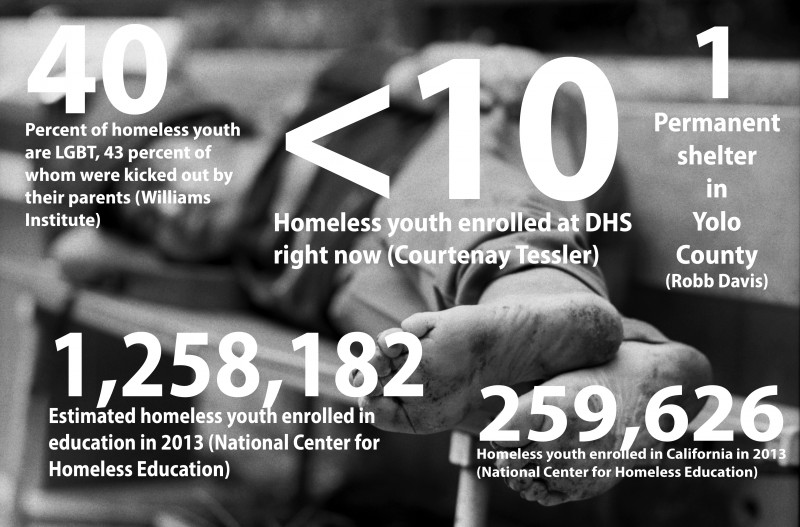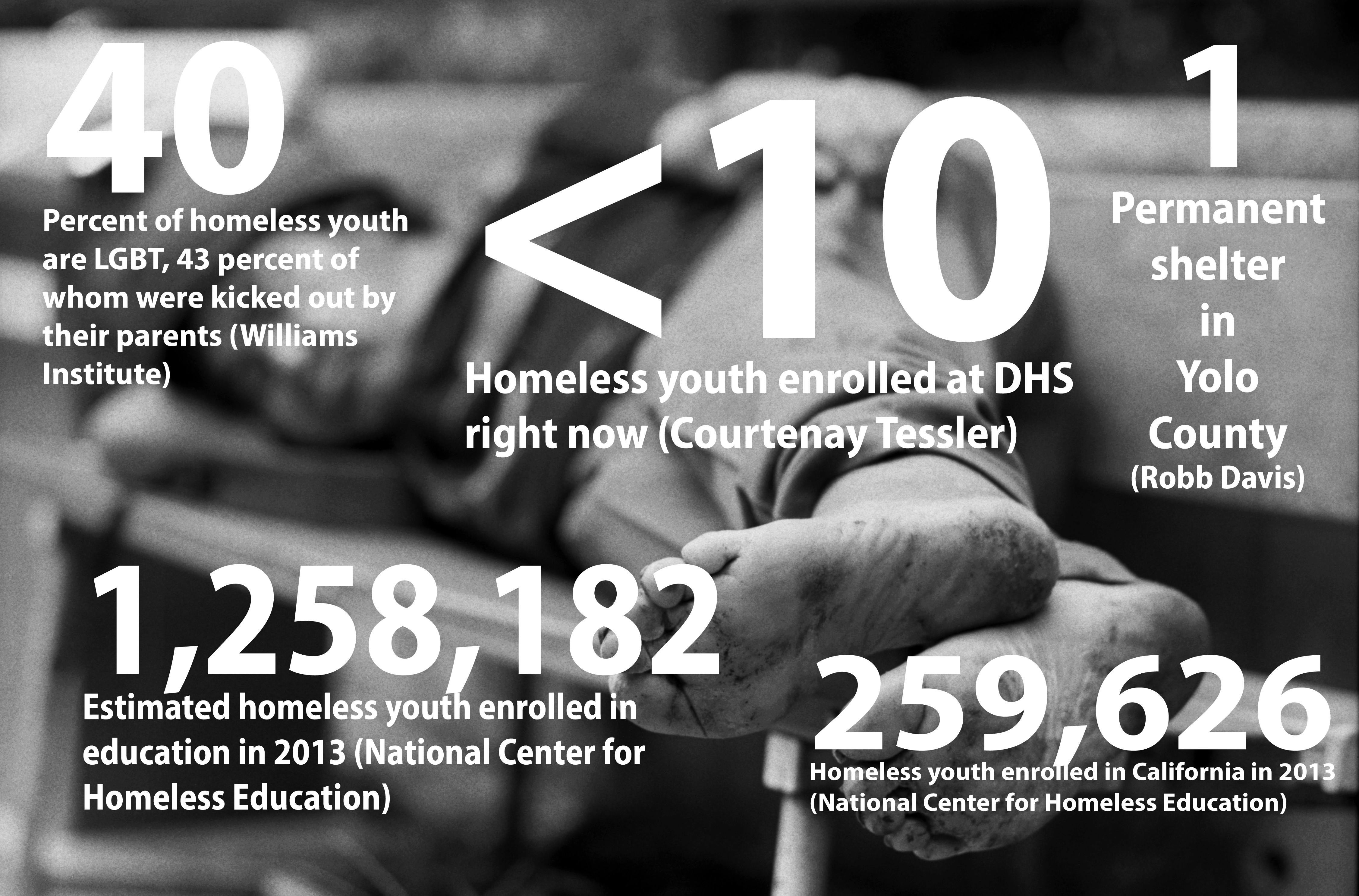LGBT WEEK: Homeless at DHS. Gay. Without family.

By David Alcalay and Eton Tuttle,
Bluedevilhub.com Staff–
A student sits shivering in the cold. It’s mid-day, but darkening clouds above cast shadows over the table he sits at. Beside him liesa a backpack full of homework. He laughs, talks, listens, smiles. On the outside he’s just like you and me. Except that he doesn’t have a home.
“Tom Smith,” who asked to be kept anonymous, came out to his parents as gay early in his senior year, but they did not accept him. He fell into depression for two months, enough so that his grades plummeted, and he even stopped eating.
In October, he told his parents he was thinking of moving out. They didn’t dissuade him.
Smith left with what little of his life he could fit into a suitcase.
Smith still has a bed to sleep in every night. He’d been considering moving out for a while, and had contacted a friend of his who agreed to let Smith live stay at his house if he moved out.
But aside from a roof and three meals a day, Smith is on his own.
“It’s hard […] it’s a hard thing to live with” Smith said, “[but] I feel I made the right decision.”
Once he had gotten settled in with his new living arrangements, Smith could focus on raising his grades and looking for work. He has to work from after school till 6 p.m., and will have to take a gap year to continue working to pay for college, since he cannot count on parent funding.
Smith says that once he moved out, he “[was] much happier,” but wouldn’t recommend it to others in similar situations.
There are many others across the country in similar situations to Smith’s.
A study done by the Williams Institute estimated that 40 percent of the more than 1.2 million homeless youth are LGBT (Lesbian, Gay, Bisexual or Transgender). 43 percent of all LGBT homeless are homeless because they were “forced out by parents because of sexual orientation or gender identity.”
Trying to get an education while being homeless can be extremely difficult. According to a study published in the American Journal of Orthopsychiatry, approximately two thirds of 18 to 21-year-old homeless youth didn’t graduate high school or obtain a GED certificate.
Homeless youth are also more prone to substance abuse. An estimated 70 to 85 percent of homeless youth abuse different substances, according to the National Alliance to End Homelessness.
They also face the basic challenge of enrolling in school. With many unable to produce immunization papers, addresses or parent/guardian signatures, the simple task of filling out a course request can be daunting.
Luckily, under the McKinney Vento Act–a federal act passed to help the homeless–low income and at risk youth can get an education.
Schools cannot deny a youth enrollment, even if he or she cannot produce the necessary documents, and every educational area or district within each state is required to designate a “liaison” to help homeless and low income youth produce any needed documents and deal with any resistance from the school.
“[We] help with removing education barriers, finding places to stay, food and clothing [and other necessities]” said Jessica Larsen, Yolo County’s Homeless and Foster Youth Liaison.
Homeless students also receive economic support from parents and teachers through head counselor Courtenay Tessler.
Tessler, who estimates there are less than 10 homeless students at Davis High, says that many times parents will give her gift cards or donations that she will then pass on to individual students. Occasionally some teachers will also pitch in to help get a student a suit or dress for prom.
Tessler also said that homeless youth are provide with SAT and ACT vouchers so that they can take the tests free of charge, and that while college is difficult, it is still an opportunity for homeless youth at Davis High, provided they keep their grades up.
The effects of homelessness hit hard, and close. Smith says he hasn’t spoken with his younger brother since he moved out, for fear of getting his brother in trouble with his parents.
His mother calls him now and then, but the conversations stay short, with little warmth.
Smith returns to his room, but the doors to his true home–and his family–remain locked.
He doesn’t have a home, but he’s got a future.





I think that these two boys wrote an excellent article….. It was very informative….well written…..yet it showed caring and hope….I felt that I would like to help, too .if I could. MM